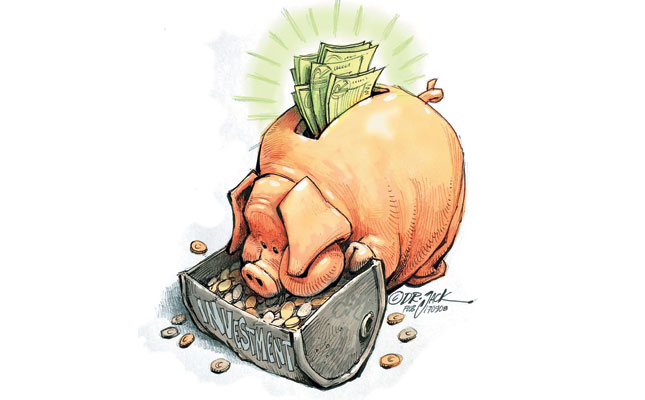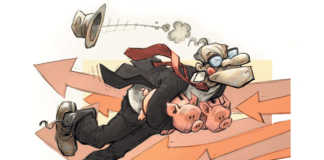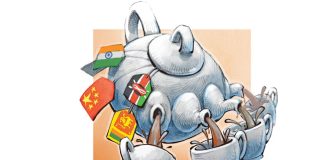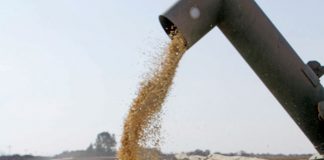
Brenthurst Wealth Management financial adviser, Richus Nel, looks at how managing personal finance and investing can be improved by thinking like a farmer.
South Africa’s investment market delivered exceptional returns – about 19,5% per year – over the 10 years prior to 2015. It’s small wonder that investors are disappointed with the market’s relative underperformance over the past two years.
The recent memory of the ‘good old days’ causes investors to have unrealistic expectations that their investments will double every five years.
This expectation is frequently the main reason why investors make investment mistakes by risking too much, or even too little.
What personal finance can learn from farming
There is a material difference between ‘harvesting’ on one hand and ‘mining’ on the other. With farming, you prepare the land, and then plant and nurture until harvesting.
With mining, you reap benefits that you have not necessarily initiated yourself.
You cannot harvest what you have not planted. In other words, you cannot benefit significantly from market growth if you have not invested significantly.
People’s expectations of returns from markets are generally too high and they, therefore, plant (save) too little.
If you want your market investments, such as your pension, to sustain you in later life, you will have to decide early on in life whether you are a sideline farmer, or a full-time farmer.
Farming requires impeccable discipline. The same goes for investment and financial well-being; financial discipline in the form of investing and spending is required daily.
Any farmer who wants to start farming needs a plan. He or she can seek the advice of consultants, but must, nonetheless, take ownership of the farming operation (personal finance) and execute that advice.
The sooner you start farming (investing), the sooner you stand the chance of running a successful farming operation.
Farmers surround themselves with professionals who provide guidance on legal, financial and tax matters. Farmers, for example, use tax specialists to ensure tax efficiencies.
Many farmers have financial savvy. They make sure they understand what they are investing in, and how this will deliver benefits. They know their margins, product prices and input costs by heart.
Farmers understand their farms and how they will deliver a harvest.
They also know what they have to do for optimal results. They are realistic about the harvest potential and what good or bad rainfall (investment cycles) results in.
Farmers belong to farming associations or bodies that provide them with useful, practical information applicable to their farming practices.
They upskill themselves to stay informed. Investment communities should imitate this behaviour.
Farmers understand that investment means paying forward; many successful farms have been built up over generations.
Investing correctly carries that benefit forward for generations to come. Farmers are also realistic about how long it takes to become a successful farmer (investor).
Farmers diversify their farming operations because they understand investment risks, and realise that some of these risks are beyond their control.
Exchange rates, interest rates, inflation, weather and market demand, among others, are all uncertainties that are relevant to farmers and investors.
What successful farmers do
Good farmers show resilience during challenging times and focus on the things they can control. They plant, or reinvest, convinced that if they do what they can, nature will take care of the rest.
They constantly apply well-founded farming principles, making sure that everything is aligned for success. When the ‘climate’ is conducive, they deliver a record harvest, which takes them forward into the next year.
They do not become millionaires overnight, or retire after a short, successful farming career. They reinvest in tomorrow and expand their horizons.
Farmers do not change their farms after an unsuccessful season. They also do not change operations in order to start again. They adapt to weather conditions, markets and risks.
Farmers can only start over and forget what they have learnt if they did not plan sufficiently before starting to farm. Investors should do the same and not cash in investments when markets become volatile and unpredictable.
The past two years demonstrated this. South Africa’s maize harvest of 2015/2016 was the worst ever. This past season’s harvest, by contrast, was record-breaking.
It is often the same with investments, which is why one should not exit productive farming when things are not going according to plan.
Farmers understand that a farm may take time to become profitable. They find this out by doing research; thereafter, they stay patient and plan ahead.
Farmers know that farming moves in cycles, so they have to be conservative during the good years to ensure survival during the lean years.
Some final considerations
Insurance plays a significant role in most farmers’ lives. The key is to insure for the risks you cannot carry as an individual, and protect yourself against risks that can threaten your future.
Farmers plan for succession. They realise that a productive farm can go to waste in just a few years due to mismanagement and ill-disciplined spending.
Personal finance is a constant but dynamic discipline, and as rewarding as farming. Not all of us can be farmers, but we can all take control of our personal finances.
The views expressed in our weekly opinion piece do not necessarily reflect those of Farmer’s Weekly.
Email Richus Nel at [email protected], or phone him on 078 260 4013.











